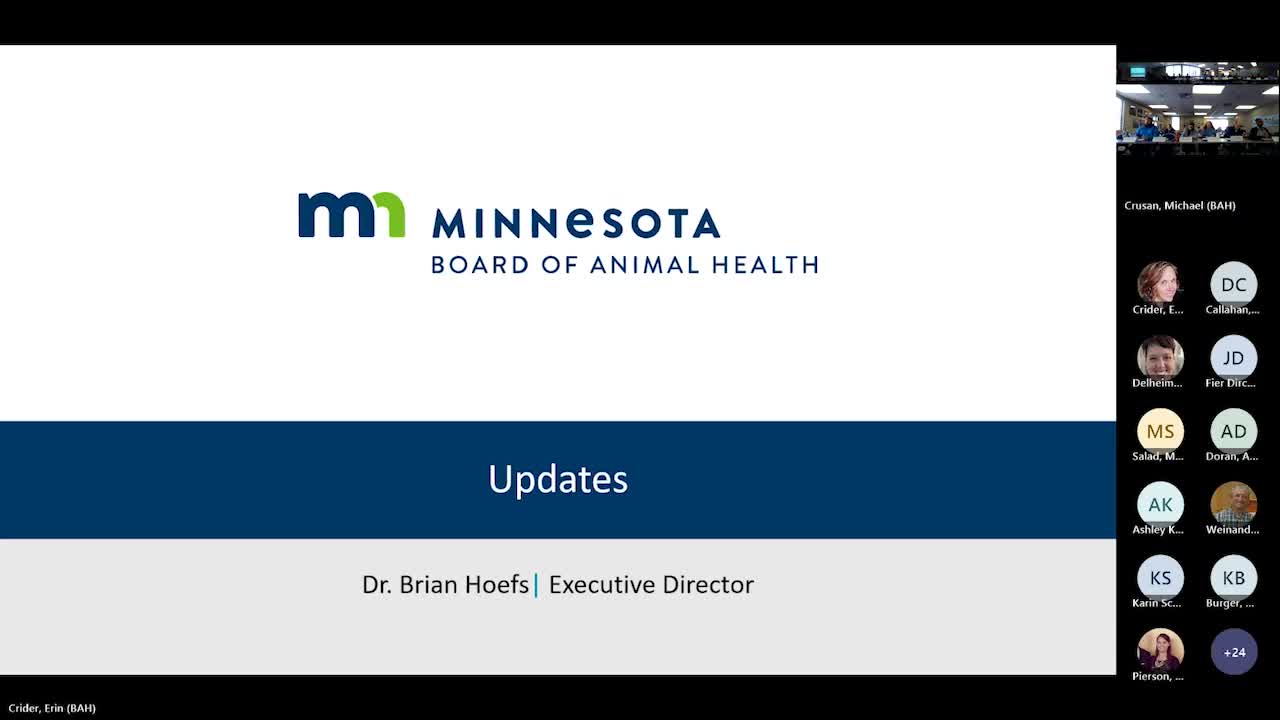Article not found
This article is no longer available. But don't worry—we've gathered other articles that discuss the same topic.
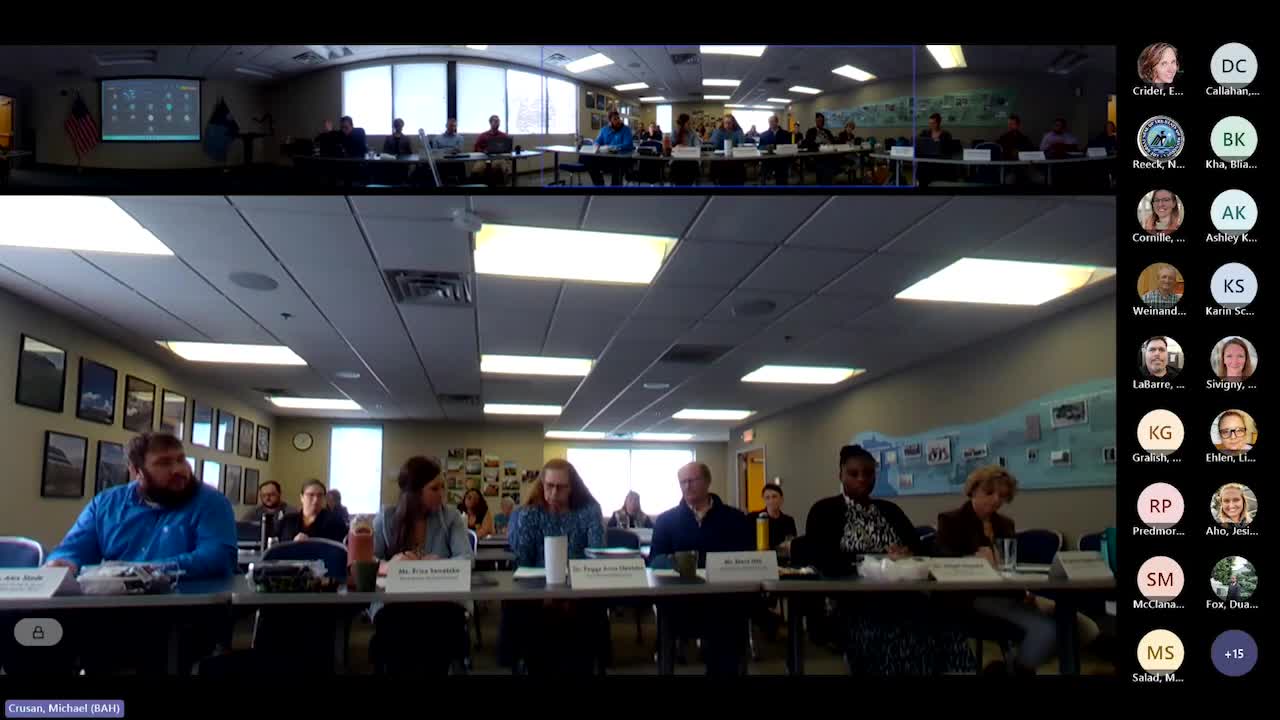
Board reappoints executive director, elects officers; board sets compliance timeline for a producer
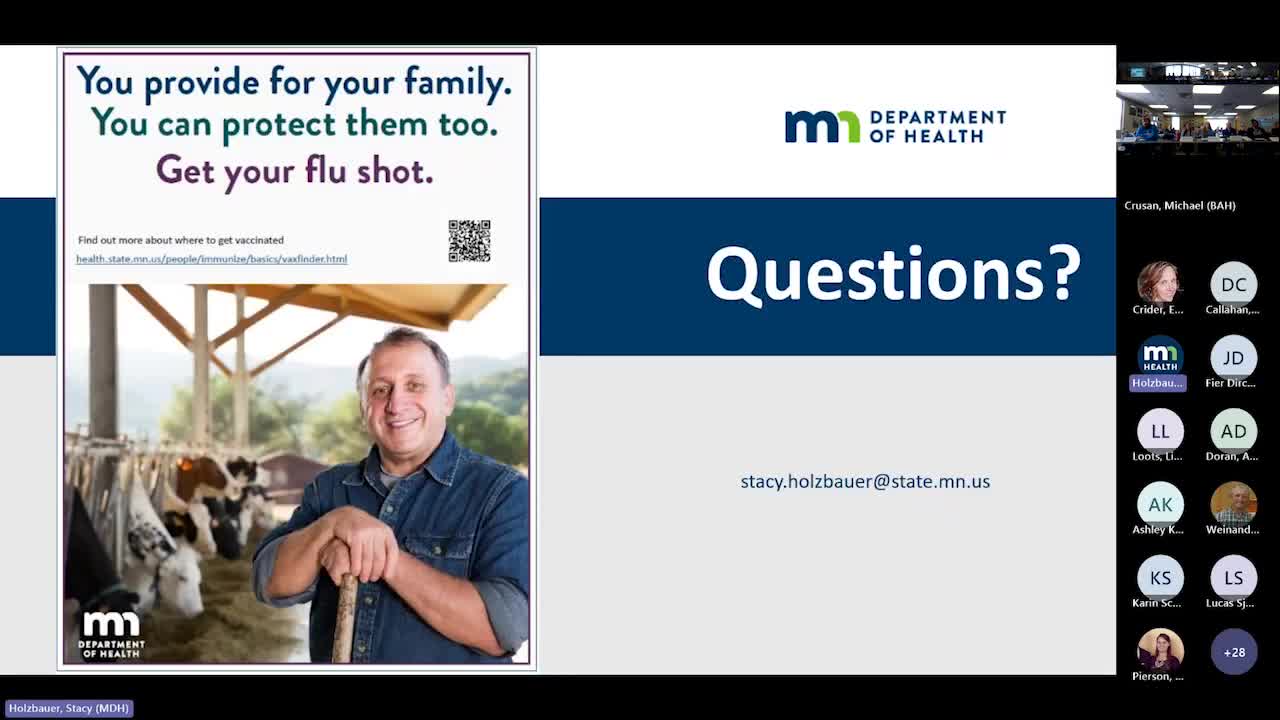
Board launches retailer‑level sampling project to trace Salmonella linked to backyard poultry
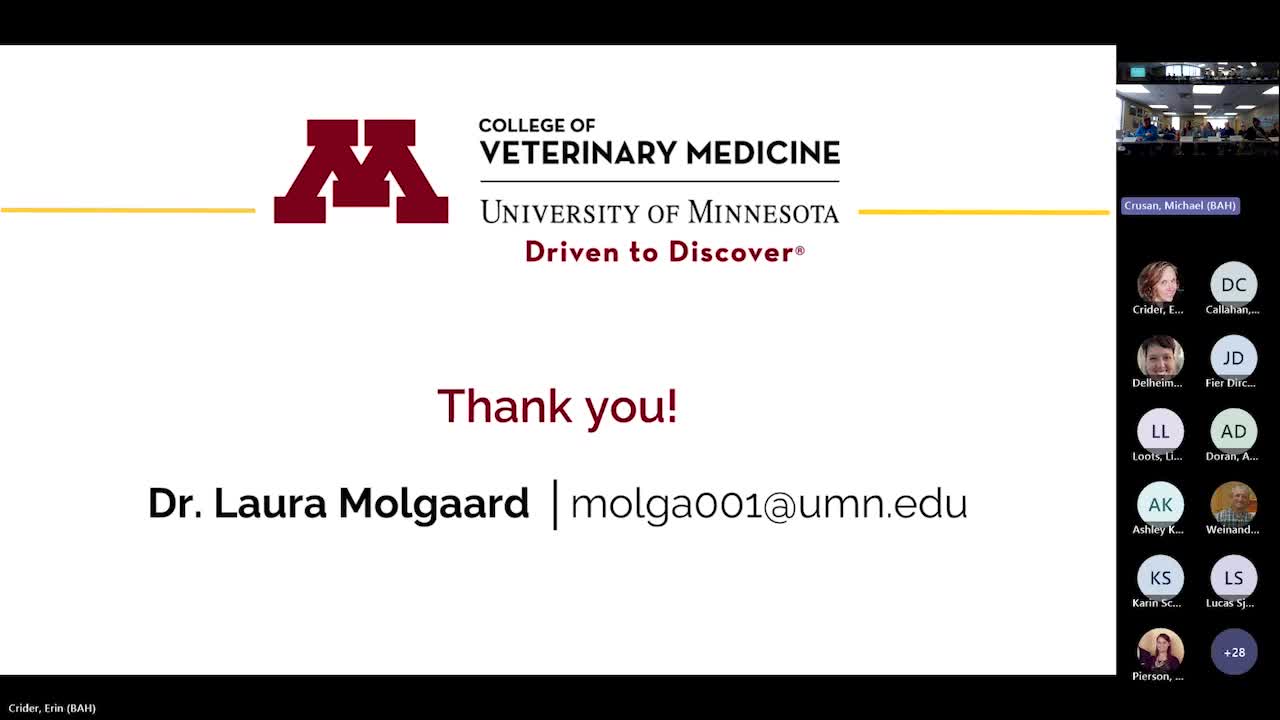
Board of Animal Health and Department of Agriculture outline tight state budget outlook and several bills affecting agency authority
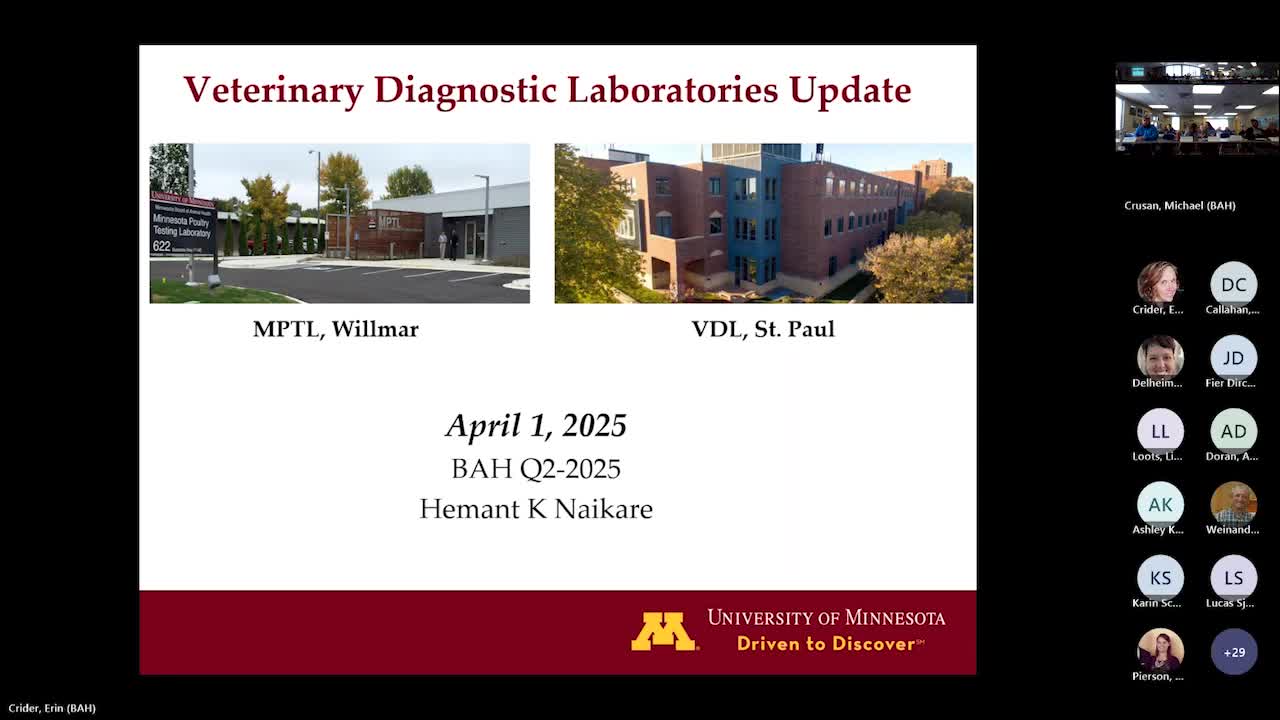
Minnesota Veterinary Diagnostic Lab wins accreditation, seeks federal funding for equipment and staffing
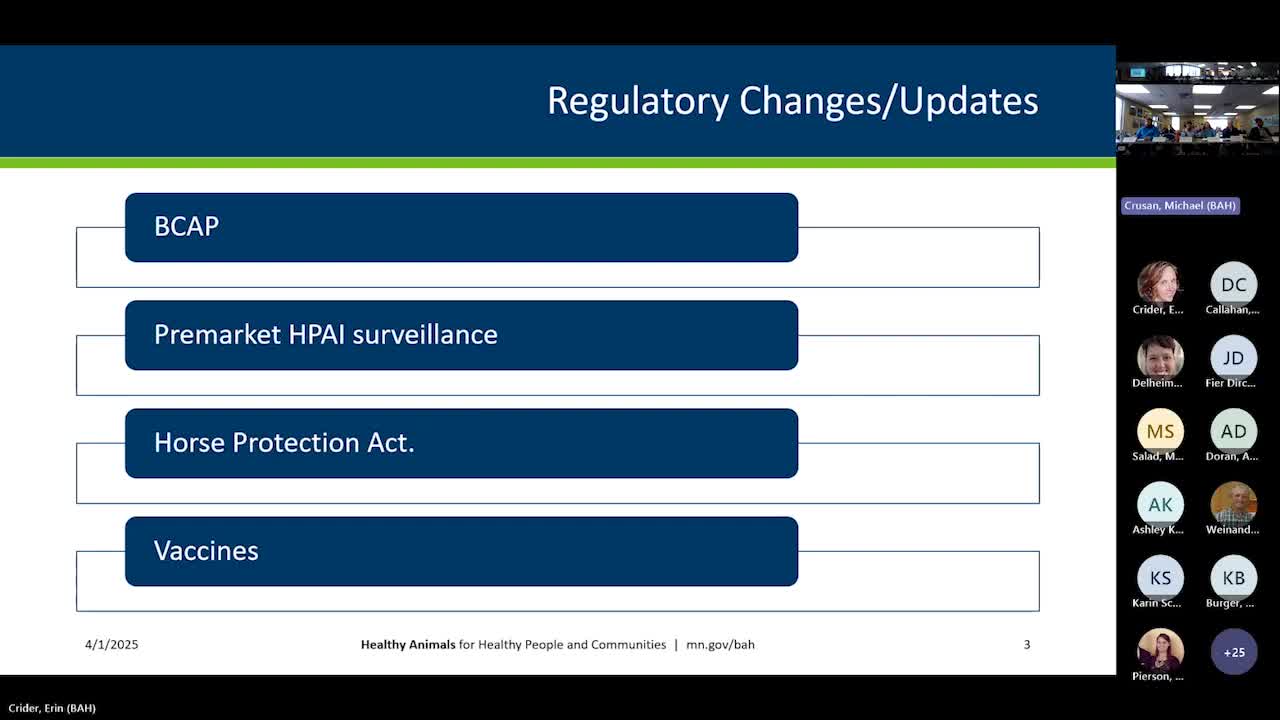
USDA audit rule and voluntary biosecurity incentives reach Minnesota producers; state reports three required BCAP audits so far
